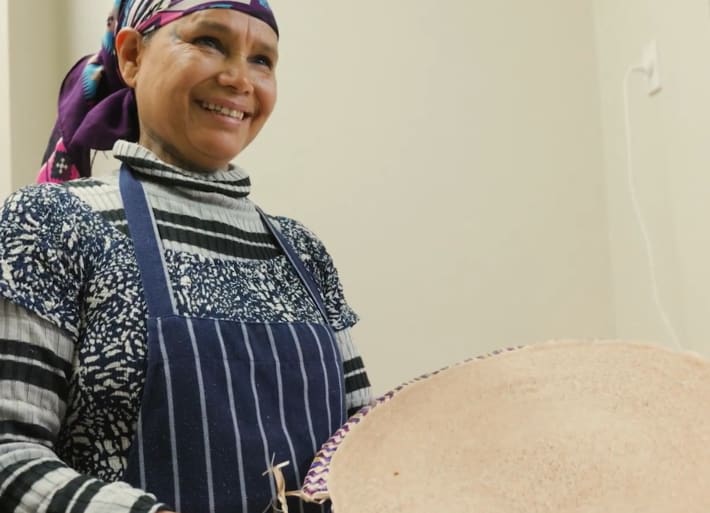‘Every single day I love to eat injera’
Sour and soft, Ethiopian's favourite bread is injera, this fermented flat bread has accompanied traditional food for centuries.
West Auckland Ethiopian restaurant Goju, is keeping the tradition of making injera alive.
No Ethiopian meals are complete without this staple accompaniment, which is made from a grain called teff, similar to the Indian millet called ragi.
But adaptation to circumstances is a diaspora's forte and Tesfo Weldekidan of Gujo restaurant, tells RNZ podcast Here Now that they have had to get inventive with ingredients.
Here Now presented by Kadambari Raghukumar is about the journeys people make to New Zealand, their identities and perspectives, all of which shape their life here.
“We don't have teff much in New Zealand. So, we’re mixing in some stuff … rice, ragi and all. This is not only teff…this is New Zealand-style injera.
“I don't think we live without injera. That's why we just find a way to make injera.”
Tesfu Weldekidan.
Craig Gladding/RNZ
Traditionally, injera are made on hot, wood-fired clay pans, there's been evidence of those clay pans in the Ethiopian city of Aksum, dating back to 600 AD.
Injera batter has a distinct sour smell that increases as the days go on with fermentation. The batter is made about once a week here and ferments for about five days.
Dawit Arshak came to New Zealand as a refugee in the late 1990s from Sudan after escaping war in Ethiopia in 1984.
Injera is more than merely sustenance in Ethiopian culture, he says.
“The shape itself is a circle. And it's like just a circle, a family circle. You sit together on a circle table, we call it a mesob. If we share a meal together, that has got very strong meaning.”
Dawit Arshak.
RNZ
Lamenting the slow loss of tradition with the next generation of Ethiopians in New Zealand, Arshak says.
“The young generation, you know, the sad part, they don't know much about all this. Those born and raised in these countries, they go to just part of the story, part of the culture, because they have to live in between two cultures.
“But we live in nostalgia, that's not existing here.”
